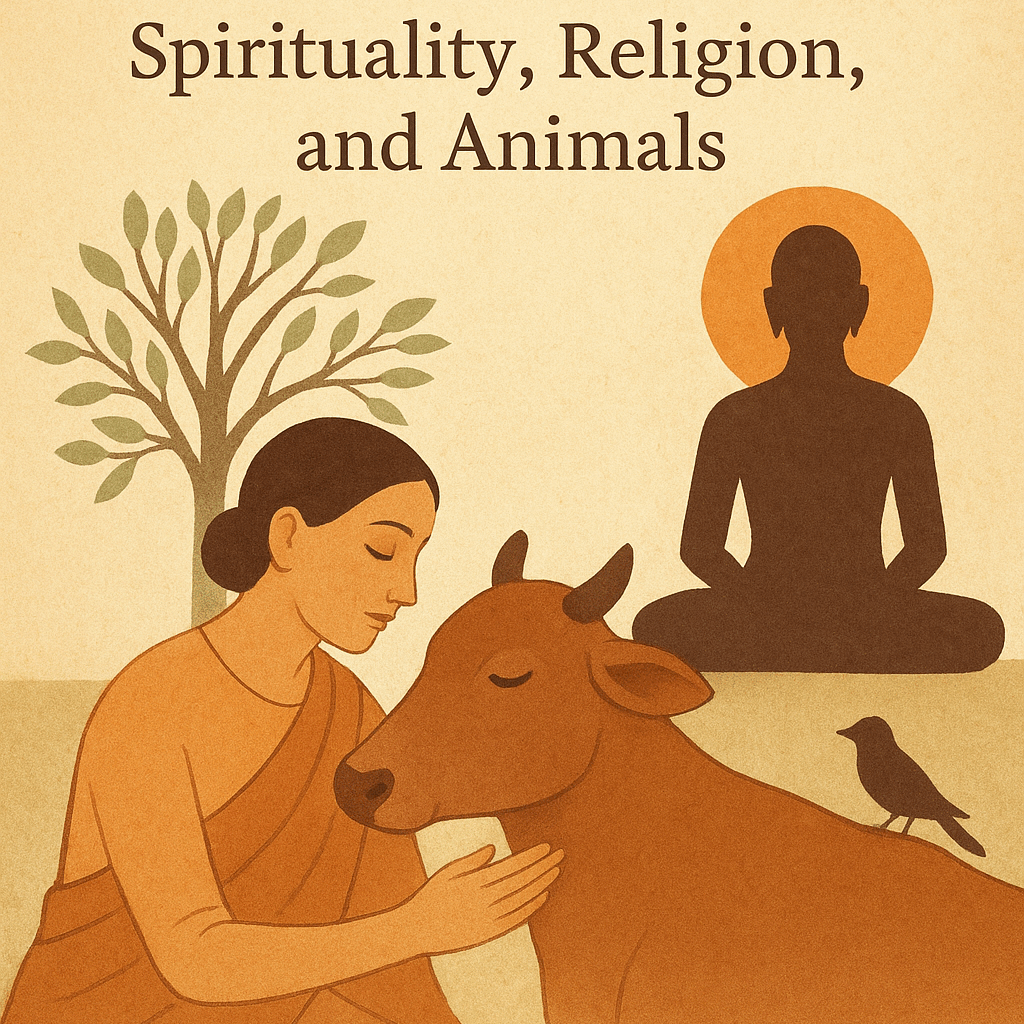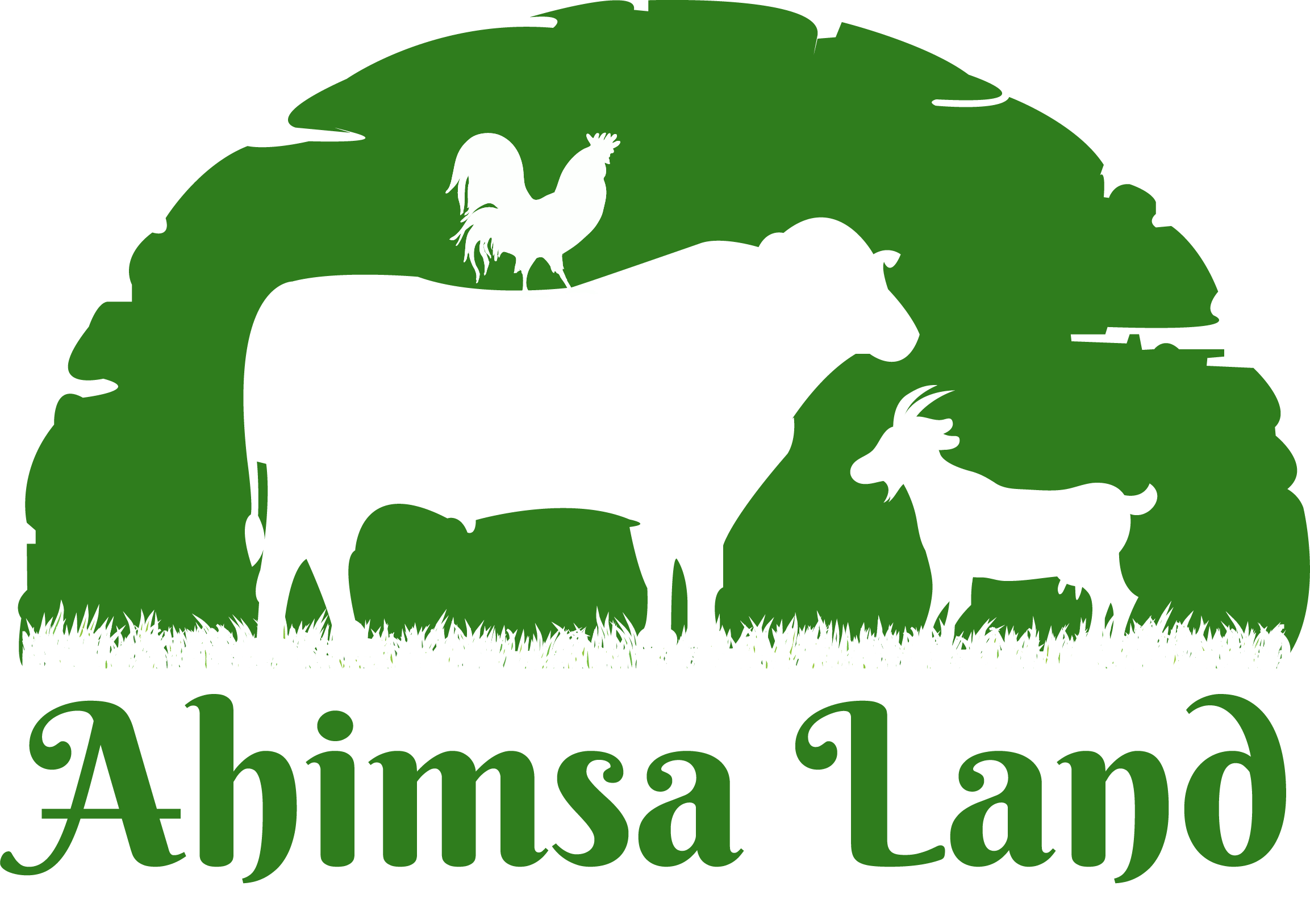
The Human Search for Meaning
Since the beginning of civilization, humans have searched for meaning beyond survival. Spirituality and organized religion arose as paths to answer life’s big questions: Who are we? Why are we here? What lies beyond this existence?
At its essence, spirituality is an inward journey. It is an evolution of the mind through truth-seeking, self-reflection, and an understanding of our place in the universe. Religion, on the other hand, often formalized this search into rituals, traditions, and practices designed to connect communities.
But while spirituality aims to transform the self, religion often introduces external symbols, festivals, and ceremonies many of which, sadly, have come at a great cost to other beings.
Animals and the Absence of Religion
Unlike humans, animals live without the weight of spirituality or the trappings of organized religion. They don’t search for meaning in temples, mosques, synagogues, churches or scriptures. They simply exist in harmony with nature, fulfilling the lives they were intended to live.
They don’t need rituals to guide them. They don’t need festivals to feel joy. They don’t need belief systems to live authentically. And they have absolutely no desire to be a part of OUR religions or spiritual search.
Yet, we repeatedly draw animals into our religious practices that they have nothing to do with in the form of sacrifices, animal processions, milk and dairy rituals, silk offerings, festive feasts, and celebrations that involve firecrackers or forced labor.
👉 In our attempt to honor the divine, we often inflict suffering on the innocent.
The Contradiction in Human Belief
Almost every religion teaches compassion in some form. Yet, paradoxically, those same religions also endorse or permit practices that harm animals.
From animal sacrifices to dairy offerings, from silks woven through the suffering of silk worms to spectacles using elephants or horses, our rituals contradict the very values of love, peace, and kindness they claim to uphold.
💡 This contradiction reveals a crucial truth: spiritual growth does not lie in ritual but in reflection.
Veganism: A Spiritual Choice Beyond Religion
For many of us, this realization brings about a quiet but profound shift.
Turning vegan doesn’t just change our plate. It changes our perception, our participation, our place in the world.
✨ We begin to step away from celebrations we once embraced.
- Wearing silk now feels like wearing someone’s suffering.
- Watching elephants in temples no longer brings awe, only sorrow.
- Crackers that once lit up the sky now echo with fear in the hearts of street animals.
- Dairy sweets that were once symbols of joy now carry the bitter taste of exploitation.
We don’t see tradition the way we used to. We see the beings behind it. Their pain. Their silence. Their invisibility.
Sometimes we wonder: have we become too different? Too sensitive? Too distant?
But maybe this isn’t about being different. Maybe it’s about being awake.
Reimagining Tradition with Compassion
We still love culture. We still cherish celebration. But we now seek ways to honor life without harming it.
🌸 To celebrate without cruelty.🌸
🌸 To belong without compromise.🌸
🌸 To make compassion tradition too.🌸
And perhaps this is the very heart of spirituality: to walk a path of nonviolence (Ahimsa), to evolve beyond inherited practices, and to embody love in action.
👉 Veganism, in this sense, is not tied to any religion. It is beyond religion. It is a living philosophy of non-harm, rooted in empathy, awareness, and justice.
Coming Home to Truth
This journey feels like coming home… not to a temple, shrine, or scripture, but to something deep within.
🌱 A recognition that spirituality is not about how we worship, but about how we live.
🌱 Not about honoring gods, but about honoring life.
In choosing compassion, we feel more connected to ourselves, to animals, to Earth than we ever did through ritual.
This, we believe, is the quiet evolution of the self. A journey we are all invited to take.
Celebrate with compassion
Join us in reimagining traditions. Let’s live a life rooted in nonviolence by replacing the old with newer practical options to celebrate without cruelty.
- Use plant-based alternatives like coconut or almond milk instead of dairy milk, coconut oil or sesame seed oil instead of ghee, or peanut or coconut milk dahi/curd and cashew paste instead of dairy in poojas, rituals, and prasad.
- Use jaggery or liquid molasses instead of honey in sweet dishes or panchamrut.
- Find symbolic and non-violent ways instead of sacrificing animals. Give away one of your dear possessions like a dress or favourite item to someone who needs it or provide plant-based groceries to someone needy.
- Celebrate without using horses and elephants in religious events and processions. Celebrate with traditional drums using vegan leather played by people wearing traditional Indian dresses instead.
- Choose organic cotton or other cruelty-free fabrics instead of silk to create new compassionate traditions.
- Celebrate festivals like Sankranti without harming birds by avoiding kite flying. Come together for music and dance, and have rangoli competitions instead.
- Choose light and joy without bursting crackers, which cause fear and harm to animals. Celebrate with traditional dances, music, and rangoli competitions instead.
- Replace dairy sweets in festivals like Ganesh Chaturthi and Diwali with traditional vegan sweets that do not use condensed milk or milk solids (khoya) and ghee. Enjoy the festive season with modaks and karanjis made with coconut and dry fruit stuffing in maida or wheat dough pastry. Check out Indian Vegan Cookbook for more traditional sweets and snacks.
- Use plant-based milks like coconut and almond milks during Mahashivratri rituals instead of dairy milk.
- Reflect on other ways to avoid animal exploitation across all faiths: Hindu, Jain, Zoroastrian, Muslim, Christian, and beyond.
If this reflection resonated with you, please share this blog with your friends and family and inspire others to celebrate without cruelty.
